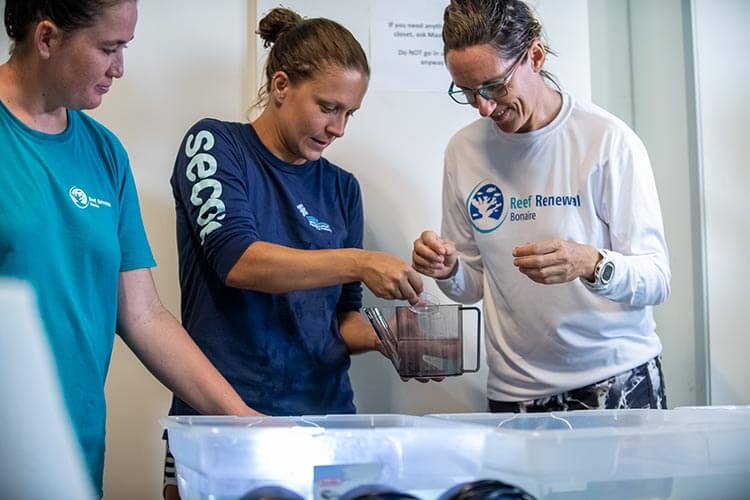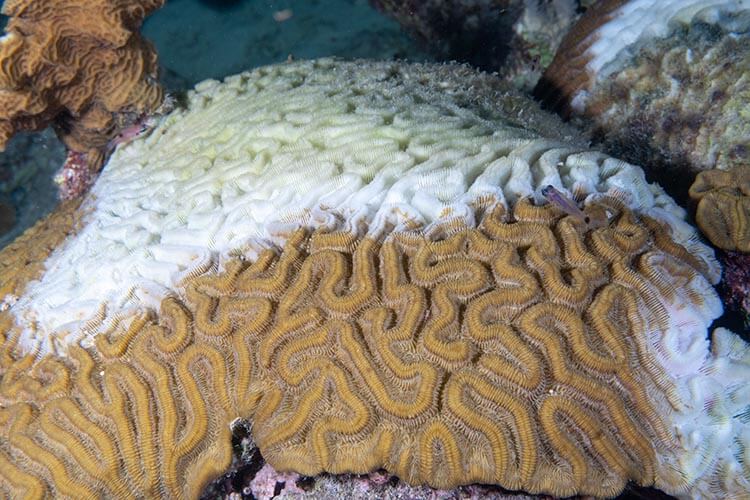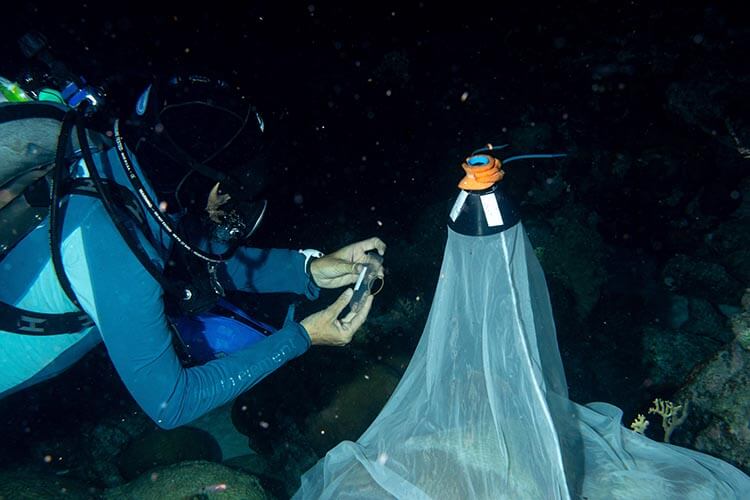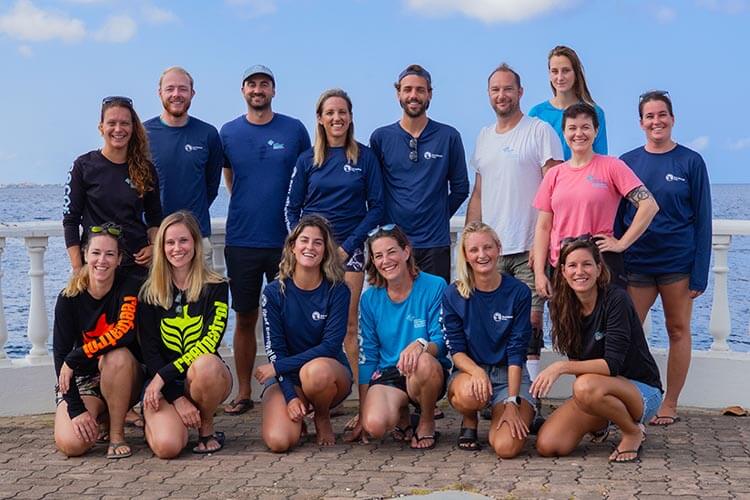
For the past four years, Reef Renewal Foundation Bonaire (RRFB) has been cultivating coral larvae in a makeshift lab, part of an initiative to bolster reef resilience to the rapid spread of disease and climate change
By DIVE Staff
Since the confirmation of Stony Coral Tissue Loss Disease (SCTLD) on Bonaire’s reefs in March 2023, Bonaire’s national park management team, Stichting Nationale Parken Bonaire (STINAPA) has implemented several measures to mitigate its spread, including limiting access to affected reef areas and the application of antibiotic treatments on affected corals.
In order to facilitate the restoration efforts, Reef Renewal Foundation Bonaire (RRFB) spent two months identifying coral colonies that have proved to be most resilient to local stressors, bringing samples to its coral nursery for propagation and subsequent outplanting.
Together with reef replanting, RRFB has also been using larval propagation – breeding coral larvae from the most resilient colonies in a lab, before returning the larvae to the more depleted reefs.
Related articles

(Photo: David J Fishman/RRFB)
Francesca Virdis, the Chief Operating Officer of Reef Renewal Bonaire, summarized the organization’s recent endeavours, saying, ‘Over the past few months, we’ve surveyed highly affected “red zone” areas to monitor and map coral colonies of various species. After identifying colonies which have exhibited resistance to the disease thus far, we are scheduled to begin propagating them by the end of this month.
Furthermore, during the May spawning event of grooved brain coral (Diploria labyrinthiformis), another highly susceptible species, we reared hundreds of thousands of coral larvae … and successfully outplanted more than 25,000 young settlers onto the reef.
‘For the past four years, RRFB has cultivated hundreds of thousands of coral larvae by transforming a small office room into a temporary, makeshift wet lab. However, limited space and lack of aquarium tanks have become significant constraints that hinder our progress,’ said Virdis. ‘This facility will not only serve as an educational and training resource, but it will also foster fruitful research collaborations.
‘Most importantly, it will enable us to implement a targeted and comprehensive coral restoration strategy that will bolster the resilience of coral populations, in the face of infectious diseases and other serious threats posed by climate change.’

Together with partner organisation Secore International, RRFB has concentrated its efforts to boost the genetic diversity of SCTLD-affected coral populations in Bonaire on 12 different species, including boulder brain coral (Colpophyllia natans), from which the team recently collected the reproductive gametes (sperm and eggs) of a number of spawning colonies, including some that were actively infected by SCTLD.
RRFB used the gametes from both healthy and diseased colonies to selectively breed entirely unique coral strains via genetic recombination, a technique which may produce corals that are stronger and better able to cope with SCTLD, warming waters, and other threats to the reef.
The larval propagation program is executed in close collaboration with Secore International, a worldwide organization dedicated to researching sexual reproduction in corals. Seven members of the Secore team recently joined RRFB in Bonaire for the boulder brain coral and staghorn coral (Acropora cervicornis) spawning season.

After a week of night dives and gamete collection at several locations, both teams were able to produce over 700,000 coral larvae, each with its own, genetically distinct makeup.
The larvae will spend a few days swimming inside underwater enclosures and, once they’ve settled, either be outplanted back to the reef or brought to RRFB’s gene bank. By stocking diverse samples of coral, RRFB ensures that resilient genotypes can be preserved, identified, and propagated.
For over half a decade, RRFB and Secore have worked closely to develop and implement cutting-edge techniques for coral restoration, and adapt them to key coral species in Bonaire.
At a time when corals are facing disease, rapidly warming waters, and other climate-induced threats, the collective efforts of both organizations are crucial to ensuring the long-term resilience of Bonaire’s reef ecosystem.


